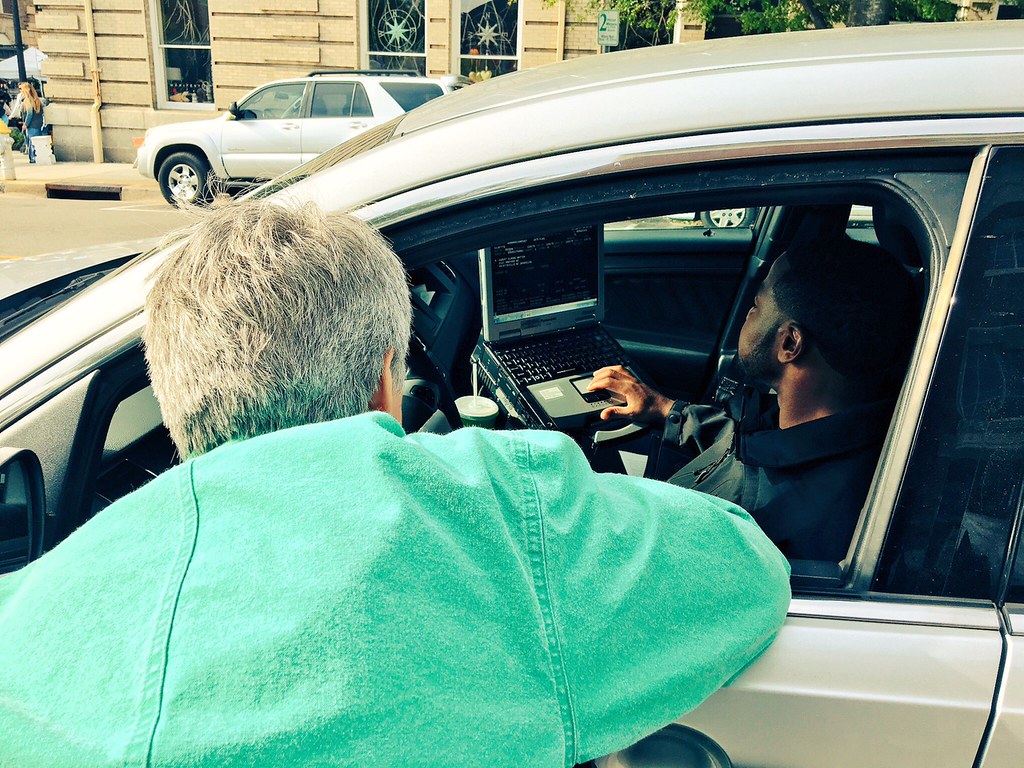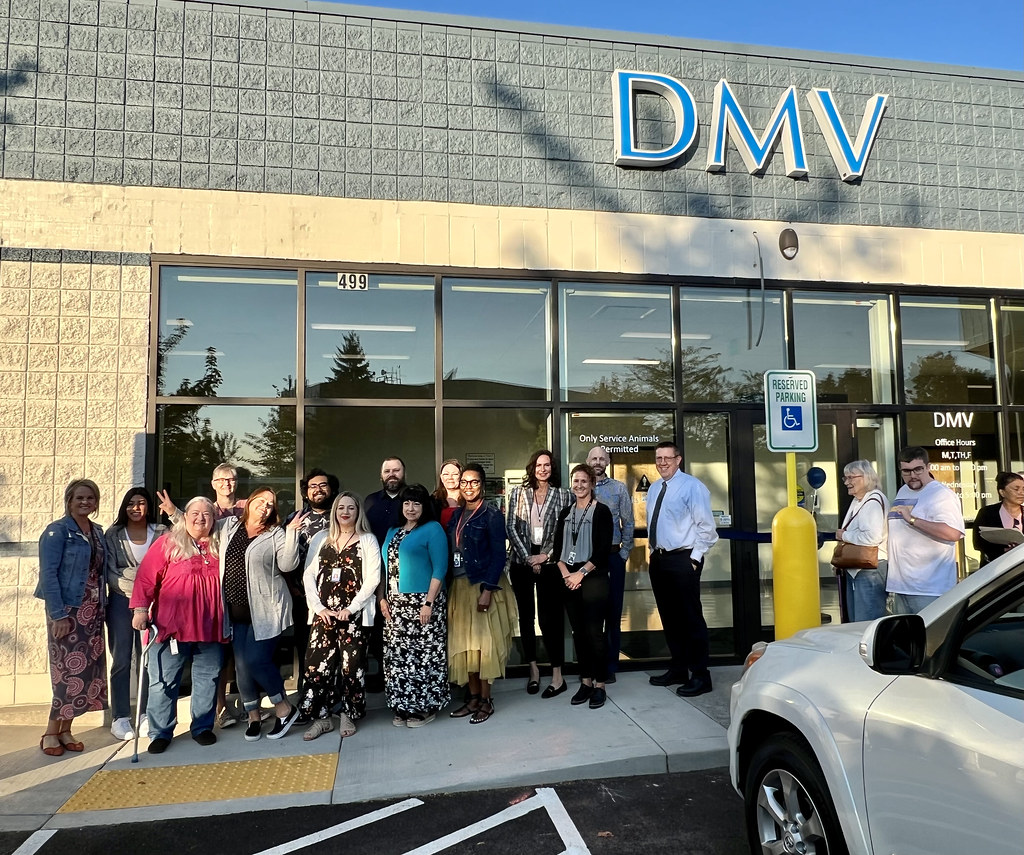
Title theft is a distressing situation that can leave car owners feeling helpless, profoundly impacting legal ownership and financial responsibilities tied to their vehicle. Each day, countless individuals unknowingly become victims of this automotive subterfuge, a testament to the cunning tactics employed by scammers who persist because many remain unaware of their methods.
The unsettling truth is that these scams are far more common than you might imagine, with real consequences ranging from significant financial burdens to legal troubles. From overpaying for a damaged vehicle to unknowingly purchasing a stolen car, the risks are substantial. Understanding your options in response to such fraudulent activity is absolutely essential for protecting your interests and ensuring your peace of mind.
To help keep you safe in your car hunt and beyond, our experts have meticulously uncovered the top car title scams. More importantly, we provide a clear roadmap to identify, evade, and protect yourself from such deceptive practices. Let’s delve into the crucial steps you can take to shield yourself from the clutches of a fraudulent title and keep your vehicle ownership secure.

1. **Monitor Your Vehicle’s Title Status Regularly**One of the most effective strategies for protecting yourself against title theft is to proactively monitor your vehicle’s title status. This vigilant approach allows you to catch unauthorized changes early, significantly mitigating potential damage before it escalates. Regularly checking in with your state’s Department of Motor Vehicles (DMV) services or utilizing vehicle history reports can provide the crucial insights needed for early detection.
A key indicator that something might be amiss is the receipt of unexpected notices from the DMV concerning ownership or registration changes you did not authorize. These could be as innocuous-seeming as renewal notices for a different vehicle or parking tickets for locations you’ve never visited. Such correspondence should immediately prompt a thorough investigation into your vehicle’s title status.
Furthermore, it is wise to keep an eye out for unauthorized transactions appearing on your vehicle’s history report. Reputable services like Carfax or AutoCheck are invaluable tools in this regard, as they can reveal discrepancies in ownership timelines, such as unexplained transfers or liens. These comprehensive reports offer deep insight into your vehicle’s past, making it easier to identify and address fraudulent activity promptly.
Another significant warning sign can come from third parties. If potential buyers or financial institutions contact you unexpectedly to inquire about the sale or financing of your vehicle, and you haven’t initiated such processes, this should trigger immediate action to verify the title’s status. Taking these steps ensures you remain in control and can act swiftly against any fraudulent attempts.
Read more about: Unlocking Unrivaled Longevity: The Top 10 Vehicles Built to Conquer 300,000 Miles and Beyond

2. **Keep All Vehicle-Related Documents in a Secure Location**Protecting your vehicle’s essential documents is a foundational element of safeguarding your ownership. The original title, your bill of sale, and current registration records are more than just paperwork; they are indisputable proof of your ownership. Keeping these documents in a secure location is paramount, as they are essential for proving ownership in the event of disputes or if you become a victim of title fraud.
Should you find yourself suspecting that your car title has been stolen, acting quickly to report it to law enforcement is critical. Filing a police report establishes an official record of the incident, which becomes incredibly important if legal action becomes necessary to reclaim your ownership. When filing, be sure to provide all available evidence, such as suspicious correspondence, vehicle history reports showing unauthorized changes, or any third-party inquiries you may have received regarding your vehicle.
After notifying law enforcement, it is equally important to inform your state’s DMV or equivalent agency without delay. Each state has specific procedures for addressing title fraud, and you may be required to complete affidavits or provide additional documentation to substantiate your ownership. The DMV can then place a hold on the title, a crucial step to prevent any further fraudulent transactions from occurring while your case is under investigation.
In administrative efforts to restore your title, you may need to provide additional notarized affidavits or sworn statements asserting your ownership. This will often be alongside critical documentation like your original bill of sale or prior registration records. The DMV meticulously verifies these materials to ensure the title is rightfully restored to its true owner, underscoring the vital role these secure documents play in proving your claim.

3. **Familiarize Yourself with Legal Protections**Understanding the legal landscape surrounding title fraud is a powerful preventative measure. Familiarizing yourself with both state and federal laws designed to protect consumers can provide a robust framework for addressing identity theft, including car title fraud. Knowledge of these protections empowers you to navigate the complexities of such a situation and seek appropriate recourse.
For instance, the Identity Theft and Assumption Deterrence Act stands as a significant federal law that provides a comprehensive framework for addressing identity theft. This act specifically allows victims to file complaints with the Federal Trade Commission (FTC) and seek their assistance in resolving fraudulent activities, including instances of vehicle title fraud. Knowing that such federal avenues exist can be a great source of reassurance and a clear path to action.
Beyond federal statutes, many states have also enacted specific laws that target vehicle title fraud directly. These state-specific regulations often impose stricter penalties on offenders and offer additional remedies for victims, providing another layer of protection. Being aware of these local protections can help you understand the full scope of your rights and the legal avenues available to you should you fall victim to a scam.
It’s crucial to recognize that title theft is not merely a civil dispute; it is classified as a criminal act. States typically categorize it under statutes relating to forgery, fraud, or theft, with the penalties varying significantly by jurisdiction. Convictions for these crimes can result in serious consequences for offenders, including substantial fines, imprisonment, or both. For felony charges, sentences can range from one to five years, demonstrating the gravity with which these offenses are viewed by the legal system.

4. **Avoid Offers for Discounted DMV Services and Unofficial Channels**One of the most insidious ways scammers attempt to defraud consumers is through enticing offers for discounted DMV services. It is absolutely critical for car owners to understand that the DMV does not, under any circumstances, offer special deals through unauthorized third parties or on social media. This is a fundamental principle to remember: if an advertisement promises discounted DMV fees, especially for services like vehicle registration renewals, it is a red flag.
The California Department of Motor Vehicles (DMV) has specifically issued warnings urging Californians to avoid advertisements that claim to offer such discounted services. State law explicitly prohibits the DMV from offering discounted vehicle registration renewals, making any such offer a clear sign of a scam. The message is unequivocal: if you encounter an advertisement for reduced DMV fees, do not engage with the advertiser.
Scammers frequently leverage social media platforms for these deceptive campaigns. For example, recent reports detail a scam that uses social media posts to offer a seemingly irresistible 50% off vehicle registration renewal fees. These fraudulent posts typically request payment through online payment applications and, alarmingly, ask for sensitive personal information such as the customer’s license plate number, Vehicle Identification Number (VIN), and full name.
Such offers are designed to lure unsuspecting individuals into providing their personal and financial details to unauthorized entities. The DMV emphasizes that it will never ask for payment or personal information through unofficial channels. Therefore, any communication from a source other than the official DMV website or an authorized business partner should be treated with extreme caution and immediately disregarded.

5. **Never Respond to Unsolicited or Suspicious Texts or Messages Asking for Personal Information**In today’s digitally connected world, unsolicited messages have become a common vector for scammers. A critical preventative measure is to adopt a strict policy of never responding to unsolicited or suspicious texts or messages that request personal or financial information. These communications are almost certainly fraudulent attempts to steal your identity or compromise your financial security.
If you receive any message, whether it’s a text, an email, or a social media direct message, that asks for sensitive details like your license plate, Vehicle Identification Number (VIN), full name, or payment information, your immediate response should be to not reply. These scammers are sophisticated, often crafting messages that appear legitimate to trick you into revealing vital data. Ignoring and deleting such messages is your best defense.
The DMV unequivocally states that it does not offer discounts, nor does it ever conduct official business through social media or other unofficial channels. This includes any form of direct messaging on platforms where scammers often operate. They rely on the urgency or curiosity generated by their fake offers to bypass your common sense, hoping you’ll act impulsively before verifying the source.
It’s essential to be aware that the goal of these unsolicited messages is often to gather enough information to facilitate identity theft or car title fraud. By providing even a seemingly small piece of personal data, you could be opening the door for fraudsters to access your accounts, create fake titles, or engage in other illicit activities. Maintaining a firm stance against responding to such requests is a simple yet powerful way to protect yourself.

6. **Verify the Source of Communication; Contact DMV Through Official Channels**When faced with any communication that raises even the slightest suspicion, the most prudent course of action is to verify the source directly. This step is non-negotiable in safeguarding your car title and registration. If you are ever unsure about the legitimacy of a message, an offer, or a request for information, always contact the DMV through their official channels.
The DMV explicitly advises customers to conduct all their business through its official website or via the authorized businesses listed in its official Business Partner Automation program for vehicle registration and title services. This is not just a suggestion; it’s a critical directive to avoid fraud. Before completing any DMV transaction with a third party, customers should always verify that business’s authorization on the DMV’s website.
DMV Director Steve Gordon reinforces this, stating, “The safest way to renew your vehicle registration is directly through the official DMV website.” This highlights the importance of relying on known, secure platforms. Any deviation from these official channels, especially when dealing with personal information or financial transactions, introduces a significant risk of falling victim to scams.
Should you have any concerns or need to clarify information, the DMV customer service team is readily available to assist you. You can reach them by calling 800-777-0133. This direct line to official support is a crucial resource, ensuring you receive accurate information and avoid deceptive schemes. Taking the time to verify can save you considerable trouble and financial loss.

7. **Utilize Official DMV Online Services and Authorized Business Partners**Embracing the convenience and security of official DMV online services and authorized business partners is a smart strategy for managing your vehicle-related affairs and protecting yourself from scams. The DMV actively encourages customers to use its online platforms and various service channels to complete most transactions, offering a streamlined and secure alternative to in-person visits.
Many essential transactions, including eligible driver’s license and vehicle registration renewals, are now primarily processed online or through designated channels, no longer requiring a trip to a physical DMV office. This shift towards digital services not only enhances convenience but also consolidates transactions into verifiable and secure environments, making it harder for scammers to intercept or mimic official processes.
Customers can also benefit from using the Service Advisor feature available on the DMV website. This valuable tool helps you understand your options and guides you through the process of completing various DMV tasks efficiently and correctly. It ensures you are taking the right steps, using the right forms, and adhering to official procedures, thereby minimizing the chance of error or susceptibility to fraudulent advice.
For an added layer of convenience and security, customers have the option to sign up for paperless vehicle registration and driver’s license renewal notices. To enroll in this program, individuals simply need to create a secure online account and register at dmv.ca.gov. This not only reduces physical mail, which could potentially be intercepted, but also centralizes your notices in a protected digital format, ensuring you receive important updates directly and reliably.

8. **Obtain a Vehicle History Report**When you’re in the market for a used car, acquiring a comprehensive vehicle history report is a fundamental step to protect yourself from title scams. This isn’t just a suggestion; it’s a critical investment that can shield you from significant financial loss, unexpected repair bills, and potential legal headaches. Reputable services provide detailed insights into a car’s past that a seller might deliberately attempt to obscure.
A robust vehicle history report typically uncovers crucial details such as past accidents, the extent of major repairs, and the complete chain of ownership. More importantly, it can instantly flag if a car has ever been declared “salvage” due to extensive damage, or if it carries a “rebuilt” designation—classifications scammers frequently attempt to ‘wash’ from the title. This transparent look into the vehicle’s past allows you to accurately assess its true condition and value, ensuring you don’t overpay for a car with a hidden, troubled history.
These reports are also invaluable for identifying discrepancies in odometer readings, a classic tell-tale sign of odometer rollback fraud. By meticulously cross-referencing recorded odometer readings with the vehicle’s current mileage, you can quickly spot inconsistencies that signal deception. A seller’s reluctance or outright refusal to provide such a report should be an immediate and significant red flag, indicating they may have something critical to conceal.
Always choose a highly reputable service for these reports. They draw data from numerous official sources, including various state Departments of Motor Vehicles, insurance companies, and certified repair shops, making their compiled information robust, credible, and difficult to fabricate. Empowering yourself with this detailed knowledge is your indispensable first line of defense in making an informed and secure used car purchase.
Read more about: Director’s Cut: 13 Concept Cars That Embody Steven Spielberg’s Visionary Future

9. **Examine Print Quality and Watermarks on the Title**Once you have a physical title in your possession, a meticulous examination of its physical characteristics is absolutely essential. Scammers often resort to crude methods of title alteration, and knowing what specific features to look for can significantly help you identify a counterfeit document. Genuine titles are equipped with distinct security features that are notoriously difficult for fraudsters to replicate accurately, making your keen observational skills a powerful deterrent.
Pay particularly close attention to the overall print quality of the title. A document that appears poorly printed, especially if it pertains to a relatively newer vehicle, can serve as a strong indicator of tampering. Scrutinize for tell-tale signs such as fuzzy printing, inconsistent fonts, blurred text, or any areas that appear to have been altered, cut, or pasted. Authentic, government-issued documents are characteristically produced with high-quality printing techniques specifically engineered to deter forgery.
Furthermore, it is crucial to familiarize yourself with the expected presence and specific appearance of watermarks. These are integral security features embedded within many state-issued titles, particularly on salvage titles, designed to prevent their fraudulent ‘washing.’ These watermarks are often subtly embedded within the paper itself and become clearly visible when held up to a direct light source. Before even meeting a seller, research and view examples of genuine titles from your specific state, or inspect your own vehicle’s title, to confidently identify irregularities.
The unequivocal absence of expected watermarks, or the presence of any that look poorly reproduced or inconsistent, should immediately trigger your suspicions. While these might seem like minor details, these visual cues are frequently the easiest ways to expose a fraudulent title. Never hesitate to question anything that doesn’t feel or look quite right; a legitimate seller will always be understanding and respectful of your thorough due diligence.

10. **Verify Information through VIN and CARFAX Reports**Beyond a general vehicle history report and physical inspection, a critical step in diligent title verification involves meticulously cross-referencing information using the Vehicle Identification Number (VIN) in conjunction with detailed CARFAX reports. This dual-pronged approach offers unparalleled transparency into the car’s complete history and confirms the legitimacy of the title presented. The VIN, essentially the unique fingerprint of any vehicle, demands consistent and rigorous verification.
Scammers are notoriously eager to rush transactions or exhibit hesitation when faced with thorough VIN checks. They know meticulous scrutiny can swiftly expose their fraudulent activities. Therefore, proactively utilize reputable resources like the National Insurance Crime Bureau’s (NICB) free VINCheck® service or vehiclehistory.gov to independently access and verify vital information about the car’s background. This allows you to cross-check details such as the car’s make, model, year, and crucially, its current and past title status.
A CARFAX Vehicle History Report is particularly potent in this verification process, as it’s a digital document securely stored on a dedicated server, making it considerably more challenging for fraudsters to manipulate. Always use the VIN provided by the seller to independently generate and review a CARFAX report. Then, meticulously compare the registered vehicle information within this report with the details printed on the physical title you are being shown.
Any discrepancies identified between these various sources—whether pertaining to ownership details, recorded mileage, accident history, or existing lien status—are significant red flags that demand your immediate and thorough investigation. Furthermore, CARFAX reports can often unveil subtle but crucial details about mismatched car parts, indicating prior extensive damage or significant repairs that might be hidden. If the seller exhibits hesitation about providing the VIN, or allows inadequate time for this essential research, exercise extreme caution. Such actions strongly suggest potential fraud, and walking away from the deal is almost always the wisest course.
Read more about: Unlocking Your Vehicle’s Secrets: A Consumer’s Guide to VINs in the Age of Car Crime

11. **Complete the Transaction at the DMV**To ensure the utmost legitimacy and proper handling of all critical paperwork, executing the final vehicle transaction directly at the Department of Motor Vehicles (DMV) stands as one of the single most effective safeguards against car title fraud. This strategic approach provides an official, supervised, and transparent environment where trained professionals can verify all documents and guide both parties through the intricate transfer process, significantly reducing risks.
When you opt to complete the transaction at the DMV, both the buyer and the seller are physically present, allowing for immediate, face-to-face verification of identities and titles. DMV staff members are extensively trained to identify and flag irregularities in documents and are uniquely positioned to confirm that the title is legitimate, authentic, and entirely free of any hidden liens or other undisclosed issues. They will also meticulously oversee the correct transfer of ownership, ensuring all necessary forms are accurately completed and filed in strict accordance with state regulations.
If a seller categorically refuses to meet you at the DMV, or attempts to present numerous, elaborate excuses to avoid this step, this should register as a major and unequivocal warning sign. A truly legitimate seller, who genuinely has nothing to conceal, will not only understand but will likely appreciate your proactive desire for a secure, transparent, and legally sound transfer of ownership. For transactions involving dealerships, it is always prudent practice to independently verify their reputation on platforms like the Better Business Bureau (BBB) website before committing to any significant deal.
This direct interaction with the official governing body effectively eliminates many of the common avenues through which title fraud typically occurs. It provides robust assurance that the vehicle is legally and properly registered in your name, thereby unequivocally protecting you from future ownership disputes and any potential liabilities that could unfortunately arise from an improperly or fraudulently transferred title. Making the effort to complete the transaction at the DMV is a simple yet profoundly powerful step to cement your ownership securely, legally, and with enduring peace of mind.
Read more about: $50,000 Mistake: 14 Essential Rules to Master When Buying a Car Out of State

12. **Exercise Caution with Transaction Methods**The chosen method of payment and the overall execution of the transaction process represent critical areas where cunning scammers frequently exploit unsuspecting buyers. To meticulously protect your significant investment and safeguard your sensitive personal information, it’s imperative to approach all payment methods with extreme caution. This particularly means strictly avoiding cash-only deals and maintaining a healthy skepticism towards unverified online escrow arrangements. Your ultimate financial security is inextricably linked to ensuring a transparent, fully verifiable, and officially documented transaction.
Cash-only transactions are a major red flag that should instantly trigger alarm, as they leave absolutely no discernible paper trail. This critical absence of documentation renders it incredibly difficult, if not impossible, to dispute fraudulent activities, trace funds, or effectively recover your investment should a scam materialize. Therefore, always firmly insist on utilizing payment methods that inherently provide a clear, undeniable, and official record of the transaction. Preferred options include certified cashier’s checks, secure electronic bank transfers, or official wire transfers directly from your financial institution.
While legitimate escrow services can be a viable and secure option for online transactions, they also present ripe opportunities for fraud if not exclusively handled through official, trusted platforms. Scammers are adept at constructing elaborate schemes, often directing unsuspecting victims to cleverly fake escrow websites or creating fabricated payment confirmations, as seen in “fake PayPal used car scams.” These deceptive setups frequently request additional payments for supposed “shipping” or “handling” fees, which, alarmingly, disappear irrevocably along with your initial payment and the phantom vehicle.
Before committing to any escrow service, it is paramount that you thoroughly investigate and independently verify its legitimacy. Ensure it is a well-established, reputable third-party service, ideally one explicitly recommended by a trusted financial institution or qualified legal advisor, rather than one solely proposed by an unknown seller. Furthermore, cultivate a deep suspicion if a buyer offers to pay significantly higher than your asking price, especially if this offer is accompanied by the caveat of sending you extra funds to cover “shipping” or other ancillary fees. This is a classic “overpayment scam” designed to trick you into wiring your own money to the fraudster, compounding your losses.
Read more about: Consumer Alert: Unmasking the 13 Car Dealership Scams That Cost Buyers Thousands

13. **Report Suspected Scams and Consult with a Legal Professional**Despite implementing preventative measures, you may still encounter or fall victim to a car title scam. In such distressing situations, swift, informed, and decisive action is paramount, not only for mitigating potential damage but also for effectively pursuing justice. The immediate and critical steps involve reporting the incident to appropriate law enforcement authorities and promptly seeking professional legal guidance.
If you suspect you are dealing with a car title scam, or have become a victim, your first and most urgent priority is to report the incident without delay to your local law enforcement agency. Provide them with all relevant information about the suspected scammer, including names, contact details, vehicle information, transaction specifics, and any suspicious correspondence. Additionally, notify the National Insurance Crime Bureau (NICB), which specializes in combating vehicle-related fraud and can provide valuable assistance and resources.
Concurrently with reporting to law enforcement, it is unequivocally advisable to consult with an attorney specializing in consumer protection and automotive law. A qualified legal professional can offer invaluable, tailored advice regarding your rights, outline potential legal courses of action, and strategize the most effective methods for recovering financial losses or re-establishing your rightful ownership. They can expertly guide you through understanding civil remedies, such as filing a lawsuit for declaratory judgment or initiating a quiet title action to conclusively resolve ownership disputes in court.
Beyond engaging law enforcement and legal counsel, if the fraudulent transaction originally took place on an online platform such as Craigslist or Facebook Marketplace, it is crucial to immediately report the scammer’s activities to the platform administrators. This proactive measure is vital, as it can significantly help prevent other unsuspecting individuals from falling victim to the same deceptive schemes. Taking these immediate, coordinated, and comprehensive steps is absolutely crucial for holding fraudsters accountable and embarking on the journey towards restoring your peace of mind and firmly re-establishing your rightful ownership.
**Conclusion:**
Read more about: Consumer Alert: 13 Essential Safeguards Against the Hidden Dangers of Buying a Car Sight Unseen Online
Navigating the used car market can feel like traversing a complex minefield, with cunning scammers constantly refining their deceptive tactics. However, by steadfastly adopting these proactive and empowering measures—from meticulously vetting comprehensive vehicle histories and scrutinizing titles for authenticity, to conducting secure and verifiable transactions, and crucially, knowing precisely when and how to seek authoritative help—you unequivocally arm yourself with the essential knowledge and practical tools needed to steer clear of fraud. Your unwavering vigilance remains your single greatest asset in this endeavor. Armed with these robust strategies, you can confidently pursue your next vehicle purchase, secure in the profound knowledge that you are exceptionally well-equipped to meticulously protect your significant investment and steadfastly maintain the unassailable integrity of your vehicle ownership. Stay thoroughly informed, exercise unwavering caution, and embark on your journey with absolute safety and confidence!




